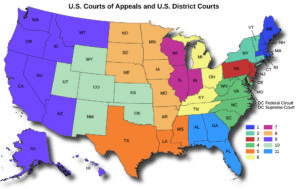 If foolishness were limited to one day a year this blog would be well overdue, but a glance at the news – legal, political or other, shows that every day in April can be April fools day, so I make no apologies for the delay in getting this out.
If foolishness were limited to one day a year this blog would be well overdue, but a glance at the news – legal, political or other, shows that every day in April can be April fools day, so I make no apologies for the delay in getting this out.
The difference between accommodation and modification under the ADA and FHA
Any discussion of S.W. Fair Hous. Council v. WG Chandler Villas SH LLC, 2021 WL 1087200 (D. Ariz. Mar. 22, 2021) must begin with a vocabulary note. The thing called “modification” under the ADA is called “accommodation” under the FHA and the thing called “modification” under the FHA doesn’t really exist under Title III of the ADA. The vocabulary matters because under the FHA a “modification” is a change to a physical feature that the tenant must pay for while an “accommodation” is a change in policy that the landlord must pay for on the theory that the costs will usually be nominal. In WG Chandler Villas the plaintiff, a fair housing organization that was testing local apartment communities for their responsiveness to the needs of the deaf, asserted that installation of a flashing doorbell was an accommodation rather than a modification, thus making the cost the landlord’s responsibility. The Court held that how to characterize such a request depended on what kinds of services the landlord already provided:
The Court finds that a flashing doorbell is a reasonable accommodation under the ADA—not merely a modification—in the context of Defendant’s housing facility, because one of the services that Defendant provides residents is safety checks.
Those safety checks included ringing the doorbell to see if the resident responded. Since deaf residents would not benefit from that safety check if they didn’t know the doorbell was being rung the addition of the flashing doorbell was better characterized as a change in policy about safety checks rather than a physical modification in the form of a new doorbell. This reasoning could apply to an array of services that any apartment complex might provide. If reserved parking is a service, for example, then a reserved accessible parking space would be an accommodation despite the physical changes (including using up an entire extra parking space) and their cost.² More


 Madeira was traditionally aged in barrels that crossed the equator twice, the heat and time fortifying and sweetening the wine. Like a cask of Madeira the sun will cross the equatorial plane of the earth in a few days, but you won’t have to wait for the next crossing in the fall for a quick hits blog. Here’s the news.
Madeira was traditionally aged in barrels that crossed the equator twice, the heat and time fortifying and sweetening the wine. Like a cask of Madeira the sun will cross the equatorial plane of the earth in a few days, but you won’t have to wait for the next crossing in the fall for a quick hits blog. Here’s the news. Valentines Day, which has been in the stores since December 26, has finally arrived in reality. Since I last blogged a few weeks ago the courts have continued to decide cases and the blogosphere has continued to cover, or mis-cover, accessibility related news. Here’s a sweet collection of matters to read after you’ve finished your celebration of the day.
Valentines Day, which has been in the stores since December 26, has finally arrived in reality. Since I last blogged a few weeks ago the courts have continued to decide cases and the blogosphere has continued to cover, or mis-cover, accessibility related news. Here’s a sweet collection of matters to read after you’ve finished your celebration of the day.
 With more than 40 new decisions in the last two weeks it hasn’t been easy getting this blog out. I’m not the only lawyer with too much to do too fast, as the following cases demonstrate.
With more than 40 new decisions in the last two weeks it hasn’t been easy getting this blog out. I’m not the only lawyer with too much to do too fast, as the following cases demonstrate. Although you wouldn’t know it from watching the news many of the 677 federal judges in the U.S. are working on cases that don’t deal with how to count votes. Here’s a look at what they’ve been up to.
Although you wouldn’t know it from watching the news many of the 677 federal judges in the U.S. are working on cases that don’t deal with how to count votes. Here’s a look at what they’ve been up to.